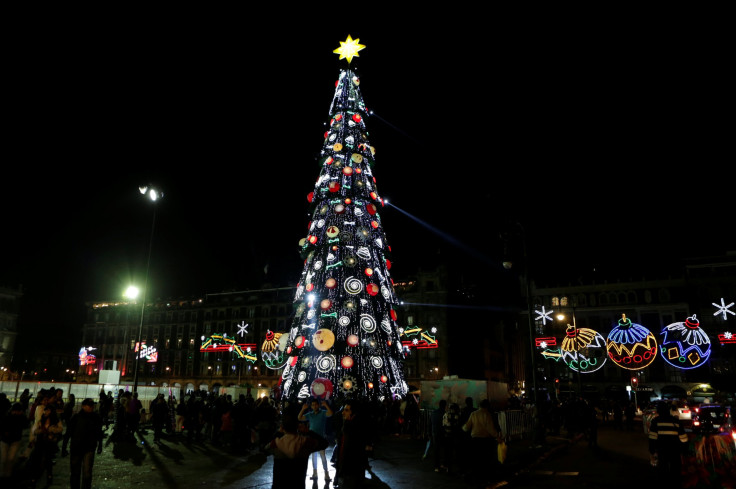Winter Holidays Around The World: Full List Of Seasonal Celebrations 2017-2018

After Thanksgiving, the holiday season kicks in in the United States and several parts of the world. In December, most of the festivals are one way or the other aligned with the winter solstice, which falls on Dec. 21.
Christmas is around the corner, so is Hanukkah and several other festivals around the world.
Following is the list of winter holidays around the world.
Feast of Our Lady of Guadalupe: The day is observed on Dec. 12 by Catholics — especially Americans of Mexican heritage — to honor the belief that Jesus’ mother Mary — Mexico’s patron saint — appeared to a man in Mexico City twice in 1531.
Hanukkah: This Jewish festival falls on different dates every year, and this year it begins Dec. 12 and ends Dec. 20. The festival commemorates the rededication of the Holy Temple in Jerusalem, Israel, during the Maccabean Revolt against the Seleucid Empire. The start date of the festival is the 25th day of Kislev as per the Hebrew calendar.
St. Lucia Day: Known as the festival of lights, St. Lucia Day is celebrated on Dec. 13 in Sweden, Norway, and the Swedish-speaking areas in Finland, to honor St. Lucia, who was killed by the Romans due to her religious beliefs. The day is marked with a procession led by the St. Lucia designee, followed by young girls dressed in white and adorning their heads with lighted wreaths, and boys dressed in white pajama-like costume singing traditional songs.
Christmas Day: Celebrated on Dec. 25 every year across the world, this annual festival commemorates the birth of Jesus Christ. On this day people celebrate the day by decorating the Christmas tree and going to church on Christmas Eve. Children wait in anticipation for gifts from Santa Claus.
Kwanzaa: This week-long celebration held in the United States and other nations in the Americas with West African diaspora commemorates African heritage. The festival begins Dec. 26 and ends Jan. 1. During the festival, families and friends gather together and exchange gifts. People also light a series of black, red, and green candles, which are symbols of the seven basic values of African American family life — unity, self-determination, collective work and responsibility, cooperative economics, purpose, creativity, and faith.
New Year's Eve: The last day of the Gregorian calendar, Dec. 31 marks the end of the year. People celebrate this day to remember the year gone by and welcome the new year.
New Year's Day: The first day of the Gregorian calendar is Jan. 1 when people celebrate as the new year kicks in. In most part of the world, this day is a federal holiday.
Three Kings Day: Celebrated on Jan. 6, this festival marks the day when the three kings arrived to visit the infant Jesus Christ. Also known as Epiphany, this day is marked with festivities in Hispanic countries and cultures.
Other holidays at the beginning of 2018 are as follows:
Orthodox Christmas Day: Sunday, Jan. 7
Orthodox New Year: Sunday, Jan. 14
Martin Luther King Day: Monday, Jan. 15 (it's a federal holiday)
© Copyright IBTimes 2025. All rights reserved.





















